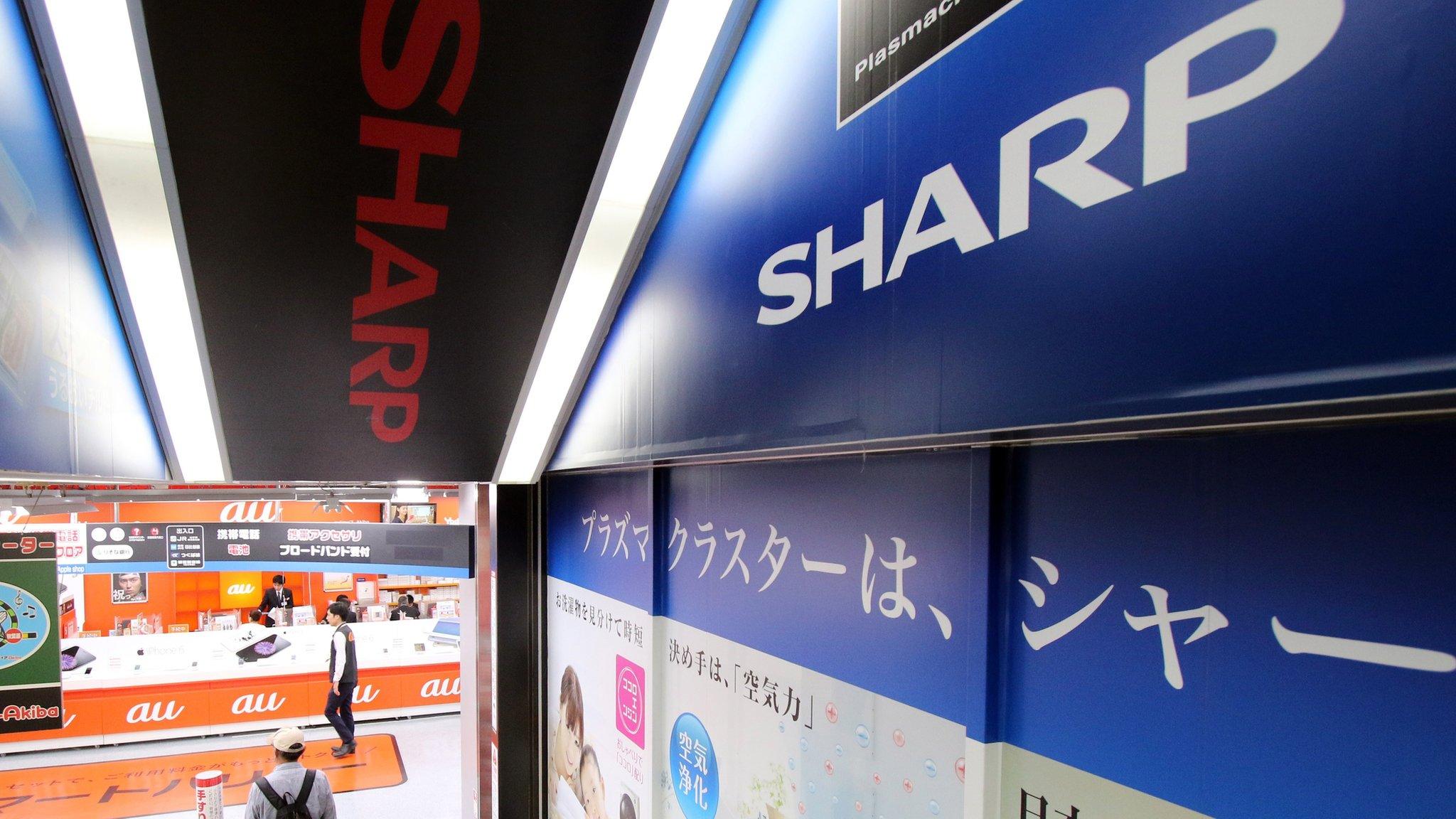Can Foxconn turn Sharp's fortunes around?
- Published
- comments
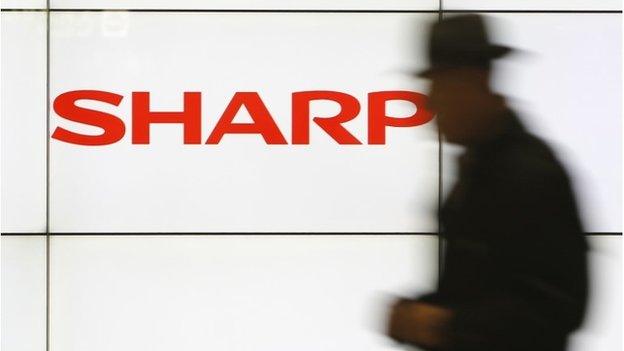
Two bailouts in three years, chronic losses and debts and a century old legacy - the board of Japan's Sharp Corp certainly has its work cut out.
Trying to save one of the giants of the Japanese tech sector has been challenging to say the least, but even harder if the defacto response in your industry to any foreign takeover deal is usually a no.
That's because Japan's technology sector is historically extremely insular, and has been reluctant to let outsiders in.
But when times are tough, business acumen trumps nationalistic tendencies.
Sharp, a major producer of display screens for smartphones, tablets and TVs, has struggled to turn a profit for some years now.
A takeover by Foxconn, which assembles smart phones and TV sets for the likes of Apple and Sony could help Sharp to sell its liquid crystal display panels elsewhere in the region, and inject fresh funds and ideas into the ailing electronics maker.
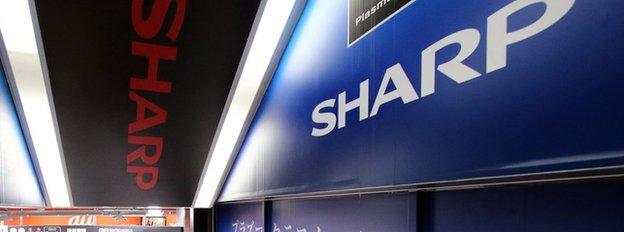
Sharp has had to be bailed out twice by lenders in the last three years

What Sharp used to make:
1915 TO 1919: The Ever-Sharp mechanical pencil, which is where the company got its name from, was one of Sharp's founder's first inventions
1925 TO 1930: First generation Japanese radio sets
1953 TO 1954: Japan's first commercially produced TV set
1960 TO 1961: Mass production of colour televisions.
1964 TO 1966: The world's first all transistor-diode electronic calculator.
1976 TO 1978: Sharp develops a TV employing an EL panel that is a mere 3 cm thick.
1992: LCD ViewCam, ushering in a new era in video cameras.
1999: Sharp announces the world's first 20-inch LCD TVs
2007: Sharp develops a 108V-inch LCD TV that it shows at the 2007 International Consumer Electronics Show in Las Vegas, Nevada.

Although this deal is the biggest foreign takeover of a major Japanese tech firm it's not the first time we've seen a foreign company get involved with a Japanese one.
Remember Nissan back in 1999? It formed a strategic partnership with France's Renault, and the two firms are joined together through a cross-shareholding agreement. To be fair though, Renault owns 43.4% of Nissan, with full voting rights, whereas Nissan owns a 15% stake in Renault - and has no voting rights. So guess who controls that relationship?
'Smell test'
That the Nissan-Renault deal was structured in such a way was likely to assuage concerns at the time of foreign interference in Japanese business. Almost two decades later it will be interesting to see what form the Foxconn-Sharp deal will take if it happens.
But Sharp has been burned by Foxconn before, so it may be more cautious this time round and push for more on the deal table.
In 2012 Sharp nearly entered bankruptcy struggling against the competition from cheaper South Korean and Chinese rivals. According to reports, Foxconn agreed to buy a 10% stake in Sharp for some $800m (£573.5m). But after Sharp's share price continued to fall the two companies failed to come to an agreement on the renegotiated share price both sides were willing to accept.
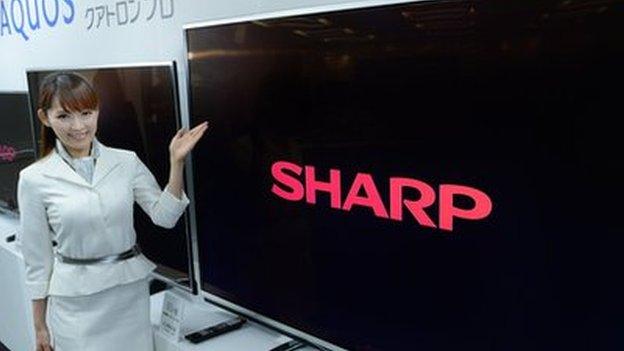
Sharp is one of Japan's largest TV makers
But turning Sharp around won't be easy. Even after two bailouts it has been unable to turn its fortunes around. Will Foxconn be able to succeed where others have failed?
Some analysts say that Foxconn's offer doesn't pass "the smell test." Atul Goyal, at Jefferies is a Sharp watcher, and points out "Given Foxconn's track record with earlier panel acquisitions..it doesn't bode well for shareholders of Sharp."
He adds that it isn't entirely clear "what Foxconn wants….It doesn't have experience in any of Sharp's businesses."
One of the reasons perhaps, why Sharp's shares were so volatile today.
- Published25 February 2016
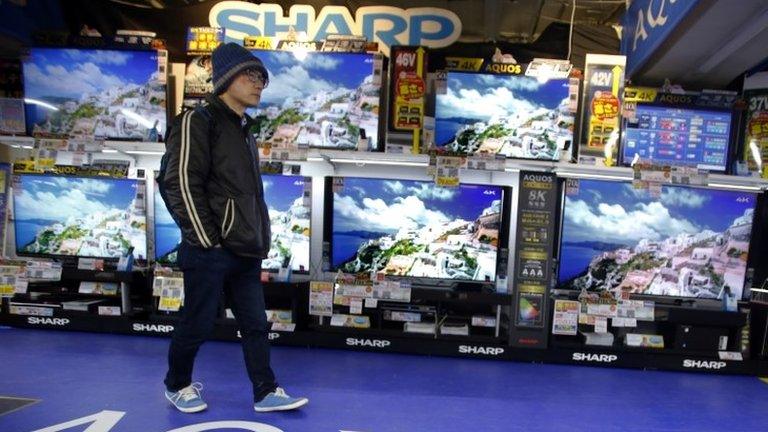
- Published14 May 2015
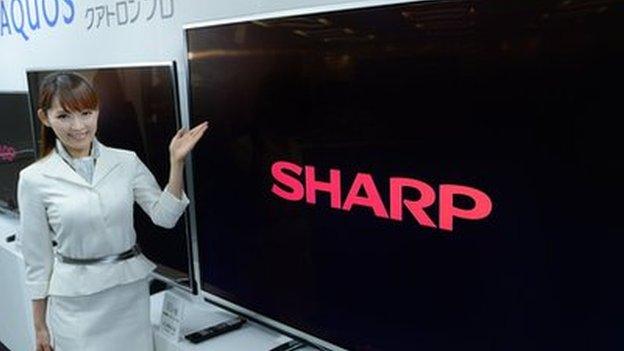
- Published30 October 2015
